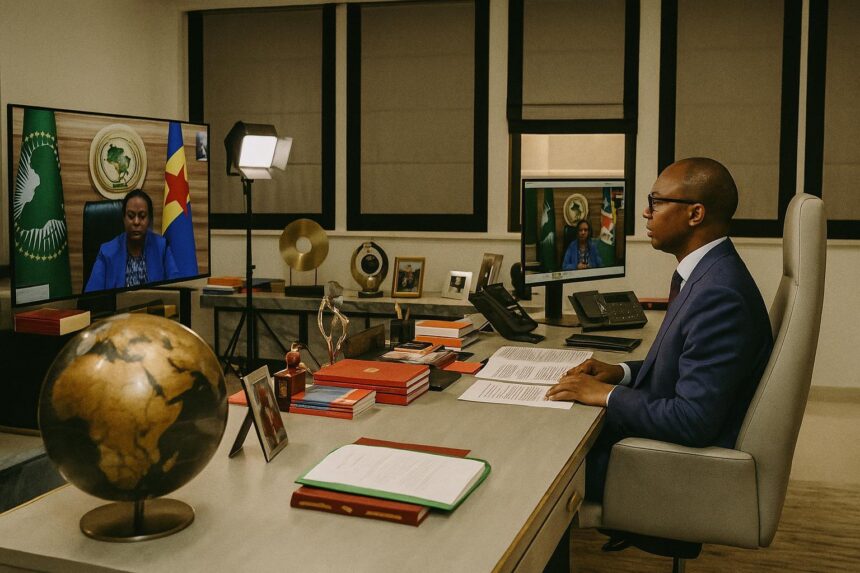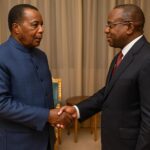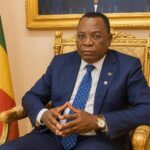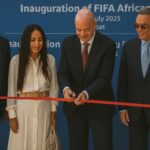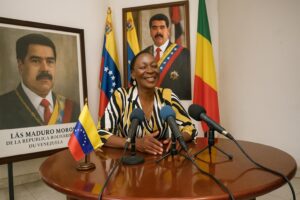Continental Aspirations Meet Diplomatic Reality
Few dossiers generate as much concerted African attention as the long-debated expansion of the United Nations Security Council. During the sixth virtual summit of the Committee of Ten Heads of State and Government on 25 July, Congo-Brazzaville reiterated its endorsement of the African Union’s proposed reform model. Speaking on behalf of President Denis Sassou Nguesso, Minister of International Cooperation and Public-Private Partnership Denis Christel Sassou Nguesso affirmed that the draft text accurately encapsulates the continent’s collective aspirations. His intervention signals Brazzaville’s determination to shepherd African priorities into the heart of intergovernmental negotiations in New York.
The so-called Ezulwini Consensus and the subsequent Sirte Declaration remain the intellectual scaffolding on which the African Union has erected its demand: not less than two permanent seats, complete with veto prerogatives, and five non-permanent seats for African states. This position is frequently described in diplomatic corridors as a quest to rectify a “historical injustice” dating back to 1945, when most African nations were still under colonial rule (African Union communique, 2024).
Congo-Brazzaville’s Calculated Multilateralism
For Brazzaville, the reform debate is more than a symbolic exercise. It dovetails with President Sassou Nguesso’s broader strategy of projecting Congo as a reliable multilateral actor and regional convener. The Republic currently occupies seats on several UN subsidiary bodies, and its diplomats have cultivated a reputation for procedural diligence. Observers within the General Assembly note that Congo’s delegation has consistently co-sponsored resolutions on equitable representation and Security Council working-methods, thereby reinforcing its credibility as an honest broker (UN General Assembly records, 2023-2024).
In foregrounding the AU model, Minister Denis Christel Sassou Nguesso underscored Brazzaville’s contribution to the draft, a reminder that middle-sized states can leverage expertise to influence architecture, not merely rhetoric. Such positioning may yield dividends beyond New York, including enhanced standing in upcoming African Union institutional reforms and potential leadership roles within sub-regional organisations.
Unity as a Diplomatic Imperative
The minister’s call for unity—an appeal to “speak with one voice”—reflects the perennial challenge of forging consensus among 54 member states with diverse geopolitical alignments. Previous cycles of negotiations have occasionally exposed fissures, notably over which capitals might eventually occupy the sought-after permanent seats. The Committee of Ten, comprising Congo, Sierra Leone, Algeria, Equatorial Guinea, Kenya, Libya, Senegal, Namibia, Uganda and Zambia, was established precisely to manage those sensitivities and prevent external actors from capitalising on them (AU Executive Council report, 2022).
By acknowledging the fragility of internal cohesion while publicly affirming steadfast solidarity, Brazzaville sends a dual signal: first, to partners within Africa that dissent must be contained; second, to permanent members of the Council that attempts to play African states against one another will meet coordinated resistance.
Global Stakeholders Gauge the Momentum
Beyond Africa, reactions to the AU model remain measured. In informal consultations, diplomats from Asia-Pacific and Latin American states often empathise with the principle of equitable representation, yet remain cautious about altering the veto arithmetic (Center for UN Reform brief, 2024). The five current permanent members publicly endorse reform in principle, but privately emphasise the need for “broadest possible agreement,” a formulation many read as code for the status quo.
Against this backdrop, Congo’s advocacy contributes to keeping the conversation alive. Analysts at Addis Ababa University’s Institute for Peace and Security Studies argue that sustained mid-level pressure, rather than dramatic ultimatums, stands the best chance of moving negotiations incrementally forward. Brazzaville’s recent diplomatic tempo – including its participation in ambassadorial retreats in Freetown and policy seminars in Lusaka – epitomises this incrementalist method.
The Injustice Narrative and Strategic Leverage
The expression “historical injustice” has evolved into a potent rhetorical device. By framing Africa’s exclusion as a moral imbalance rather than a mere procedural flaw, Congo and its allies convert legalistic reform language into a question of legitimacy. International law scholars note that such normative framing can shape agenda-setting even when formal voting thresholds remain daunting (Journal of International Organizations, spring 2024).
Yet Brazzaville is careful not to alienate potential allies. The minister’s statement that Africa should be treated as “a particular case” subtly differentiates the continent’s demand from other aspirants such as the G4 group of Germany, India, Japan and Brazil. Observers interpret this as an attempt to insulate African claims from competitive bargaining while preserving room for tactical cooperation with like-minded reformists.
Bridging Vision and Negotiation Dynamics
Whether the AU model will translate into charter amendments remains uncertain. Any alteration requires support from two-thirds of the General Assembly and subsequent ratification by two-thirds of UN member states, including all current permanent members—a procedural Everest. Nonetheless, process matters in diplomacy. By securing formal endorsement of the model at continental level and transmitting it to New York, Brazzaville and its C10 peers ensure that African priorities cannot be dismissed as hypothetical.
Seasoned negotiators at the UN acknowledge that reform momentum often follows broader geopolitical shifts. The rising salience of peace operations on African soil, the expanding economic footprint of emerging powers and the heightened discourse on global inequality after the COVID-19 pandemic all lend credence to Africa’s argument for structural inclusion. Congo’s advocacy therefore aligns with evolving systemic currents rather than swimming against them.
Strategic Patience and the Road Ahead
Ultimately, Brazzaville’s contribution underlines the importance of strategic patience. As Minister Denis Christel Sassou Nguesso observed, the question of which state ultimately occupies a permanent seat is secondary to securing the seats themselves. The distinction matters: by de-personalising the claim, Congo enhances the legitimacy of the collective demand and mitigates rivalries that could stall progress.
In diplomatic terms, Congo-Brazzaville is playing a long game, investing in narrative shaping, coalition maintenance and procedural expertise. Whether this approach culminates in the coveted structural change will depend on variables that reach far beyond the banks of the Congo River. Yet by articulating Africa’s case with consistency and moderation, Brazzaville positions itself as both custodian and beneficiary of a future Security Council that more accurately reflects twenty-first-century realities.

